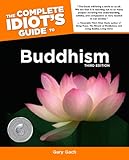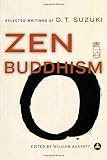|
|
Help |
| Home - Basic B - Buddhism (Books) | |
e99 Online Shopping Mall
|
|
Help |
| Home - Basic B - Buddhism (Books) | |
| 1-20 of 100 | Next 20 |
click price to see details click image to enlarge click link to go to the store
| 1. Hinduism and Buddhism, An Historical Sketch, Vol. 1 by Sir Eliot | |
 | Paperback: 330
Pages
(2010-07-12)
list price: US$9.99 -- used & new: US$9.99 (price subject to change: see help) Asin: B003VTXYKK Canada | United Kingdom | Germany | France | Japan |
|
Editorial Review Product Description | |
| 2. Hinduism and Buddhism, An Historical Sketch, Vol. 3 by Sir Eliot | |
 | Paperback: 556
Pages
(2010-07-12)
list price: US$9.99 -- used & new: US$9.99 (price subject to change: see help) Asin: B003VS0ZB2 Canada | United Kingdom | Germany | France | Japan |
|
Editorial Review Product Description | |
| 3. Hinduism and Buddhism, an Historical Sketch, Vol. 2 by Charles Eliot | |
 | Paperback: 256
Pages
(2010-03-07)
list price: US$10.75 -- used & new: US$10.75 (price subject to change: see help) Asin: 1443206741 Canada | United Kingdom | Germany | France | Japan |
|
Editorial Review Product Description | |
| 4. Buddhism Plain and Simple by Steve Hagen | |
 | Paperback: 176
Pages
(1998-12-29)
list price: US$10.95 -- used & new: US$5.03 (price subject to change: see help) Asin: 0767903323 Average Customer Review: Canada | United Kingdom | Germany | France | Japan |
|
Editorial Review Product Description Customer Reviews (158)
| |
| 5. Buddhism For Dummies by Jonathan Landaw, Stephan Bodian | |
 | Paperback: 384
Pages
(2002-12-01)
list price: US$21.99 -- used & new: US$10.74 (price subject to change: see help) Asin: 0764553593 Average Customer Review: Canada | United Kingdom | Germany | France | Japan |
|
Editorial Review Product Description Customer Reviews (32)
| |
| 6. Buddhism for Beginners by Thubten Chodron | |
 | Paperback: 160
Pages
(2001-02-25)
list price: US$12.95 -- used & new: US$7.43 (price subject to change: see help) Asin: 1559391537 Average Customer Review: Canada | United Kingdom | Germany | France | Japan |
|
Editorial Review Product Description Customer Reviews (33)
| |
| 7. Buddhism Without Beliefs: A Contemporary Guide to Awakening by Stephen Batchelor | |
 | Paperback: 144
Pages
(1998-03-01)
list price: US$13.00 -- used & new: US$6.86 (price subject to change: see help) Asin: 1573226564 Average Customer Review: Canada | United Kingdom | Germany | France | Japan |
|
Editorial Review Product Description Customer Reviews (122)
| |
| 8. Buddhism for Mothers: A Calm Approach to Caring for Yourself and Your Children by Sarah Napthali | |
 | Paperback: 240
Pages
(2010-10-01)
list price: US$16.95 -- used & new: US$10.05 (price subject to change: see help) Asin: 1742373771 Average Customer Review: Canada | United Kingdom | Germany | France | Japan |
|
Editorial Review Product Description Firmly grounded in the day-to-day reality of being a mother, this revolutionary guide discusses Buddhist teachings as applied to the everyday challenges of bringing up children Teaching how to become a calmer and happier mother through Buddhist teachings, this enlightened book helps mothers achieve their full potentials to be with their children in the all-important present moment, as well as to gain the most possible joy out of being with them. Parenthood can be a time of great inner turmoil for a womanyet parenting books invariably focus on nurturing children rather than the mothers who struggle to raise them. This book is different; simply put, it's a book for mothers. Using Buddhist practices, Sarah Napthali offers ways of coping with the day-to-day challenges of motherhood. These ways also allow space for the deeper reflections about who we are and what makes us happy. By acknowledging the sorrows as well as the joys of mothering, Buddhism for Mothers can help enable a shift in perspectiveso that a mother’s mind can guide them through the day instead of dragging them down. This is Buddhism at its most accessible, applied to the daily realities of ordinary parents. Customer Reviews (41)
| |
| 9. Manual of Zen Buddhism by Daisetz Teitaro Suzuki | |
 | Paperback: 166
Pages
(2010-10-01)
list price: US$16.95 -- used & new: US$16.10 (price subject to change: see help) Asin: 1604443219 Average Customer Review: Canada | United Kingdom | Germany | France | Japan |
|
Editorial Review Product Description Customer Reviews (10)
| |
| 10. Buddhism and Buddhists in China by Lewis Hodus | |
 | Paperback: 80
Pages
(2009-07-01)
list price: US$9.45 -- used & new: US$6.42 (price subject to change: see help) Asin: 1438522010 Average Customer Review: Canada | United Kingdom | Germany | France | Japan |
|
Editorial Review Product Description Customer Reviews (1)
| |
| 11. One Breath at a Time: Buddhism and the Twelve Steps by Kevin Griffin | |
 | Paperback: 256
Pages
(2004-06-09)
list price: US$15.95 -- used & new: US$9.18 (price subject to change: see help) Asin: 1579549055 Average Customer Review: Canada | United Kingdom | Germany | France | Japan |
|
Editorial Review Product Description Customer Reviews (34)
| |
| 12. An Introduction to Zen Buddhism by D. T. Suzuki | |
 | Paperback: 144
Pages
(1994-01-13)
list price: US$13.00 -- used & new: US$6.85 (price subject to change: see help) Asin: 0802130550 Average Customer Review: Canada | United Kingdom | Germany | France | Japan |
|
Editorial Review Product Description Customer Reviews (26)
| |
| 13. Outlines Of Mahayana Buddhism (1908) by Daisetz Teitaro Suzuki | |
 | Hardcover: 450
Pages
(2009-08-27)
list price: US$51.95 -- used & new: US$35.21 (price subject to change: see help) Asin: 1120096901 Average Customer Review: Canada | United Kingdom | Germany | France | Japan |
|
Editorial Review Product Description Customer Reviews (3)
| |
| 14. Introduction to Tibetan Buddhism, Revised Edition by John Powers | |
 | Paperback: 512
Pages
(2007-12-25)
list price: US$22.95 -- used & new: US$14.27 (price subject to change: see help) Asin: 1559392827 Average Customer Review: Canada | United Kingdom | Germany | France | Japan |
|
Editorial Review Product Description Customer Reviews (11)
| |
| 15. The Essence of Tibetan Buddhism - The Three Principal Aspects to the Path and Introduction to Tantra by Thubten Yeshe | |
 | Paperback:
Pages
(2003)
-- used & new: US$1.00 (price subject to change: see help) Asin: B0013W8I6M Canada | United Kingdom | Germany | France | Japan |
|
Editorial Review Product Description | |
| 16. The Complete Idiot's Guide to Buddhism, 3rd Edition by Gary Gach | |
 | Paperback: 416
Pages
(2009-06-02)
list price: US$18.95 -- used & new: US$7.70 (price subject to change: see help) Asin: 1592579116 Average Customer Review: Canada | United Kingdom | Germany | France | Japan |
|
Editorial Review Product Description Customer Reviews (5)
| |
| 17. Zen Buddhism by Daisetz T. Suzuki, William Barrett | |
 | Paperback: 400
Pages
(1996-07-01)
list price: US$15.99 -- used & new: US$8.86 (price subject to change: see help) Asin: 038548349X Average Customer Review: Canada | United Kingdom | Germany | France | Japan |
|
Editorial Review Product Description Customer Reviews (9)
| |
| 18. Buddhism for Mothers of Schoolchildren: Finding Calm in the Chaos of the School Years by Sarah Napthali | |
 | Paperback: 258
Pages
(2010-07-01)
list price: US$15.95 -- used & new: US$8.39 (price subject to change: see help) Asin: 1741756979 Average Customer Review: Canada | United Kingdom | Germany | France | Japan |
|
Editorial Review Product Description Customer Reviews (1)
| |
| 19. The Foundations of Buddhism (OPUS) by Rupert Gethin | |
 | Paperback: 352
Pages
(1998-09-24)
list price: US$29.99 -- used & new: US$17.73 (price subject to change: see help) Asin: 0192892231 Average Customer Review: Canada | United Kingdom | Germany | France | Japan |
|
Editorial Review Product Description Customer Reviews (14)
| |
| 20. Buddhism for Mothers of Young Children: Becoming a Mindful Parent by Sarah Napthali | |
 | Paperback: 258
Pages
(2010-07-20)
list price: US$16.95 -- used & new: US$9.92 (price subject to change: see help) Asin: 1742371922 Average Customer Review: Canada | United Kingdom | Germany | France | Japan |
|
Editorial Review Product Description A combination of personal narrative and stories gathered from mothers, this guide shows how spiritual and mindful parenting can help all mothers—Buddhists and non-Buddhists—be more open, attentive, and content. By guiding mothers on a spiritual path, this evocation also helps them cultivate wisdom, open-heartedness, and a better understanding of themselves and their children. The Buddhist teachings and principles help answer questions that all mothers face, especially those with young children: Who are my children? Who am I? How can I do my best by my children and myself? What to do about all that housework? and Is this all? Written in a clear and engaging style, this warm and simple meditation facilitates parenting with awareness, purpose, and love. Customer Reviews (6)
| |
| 1-20 of 100 | Next 20 |